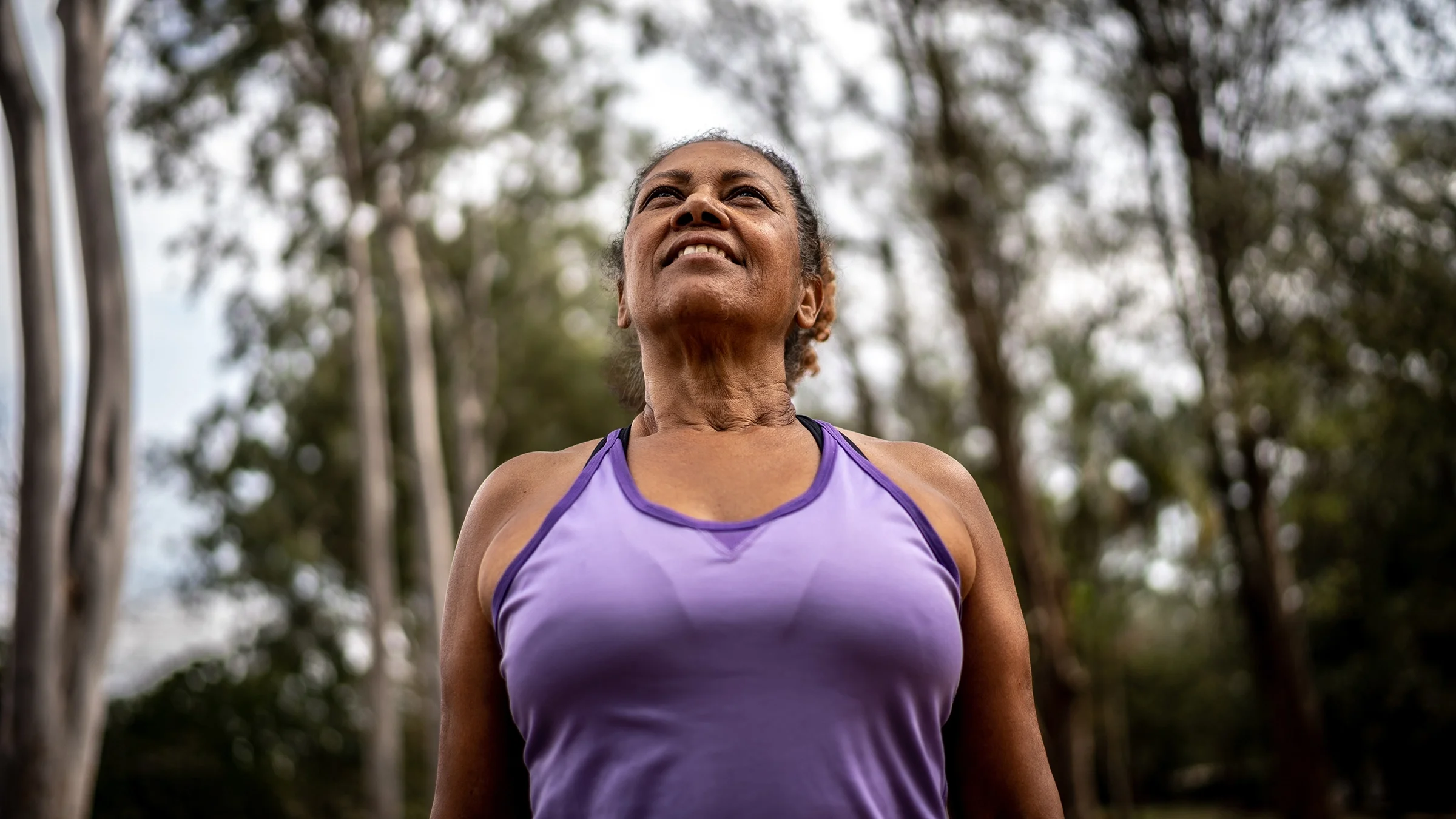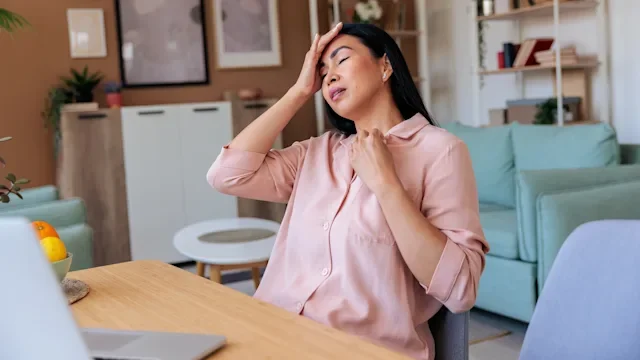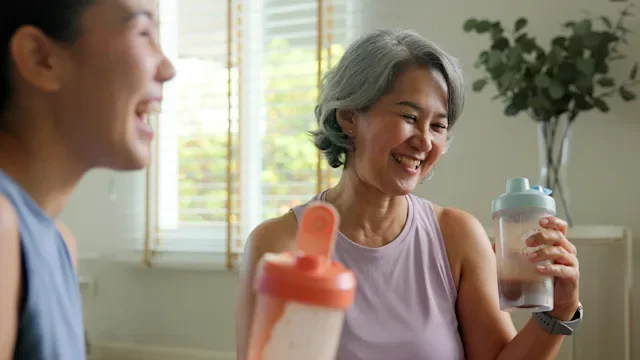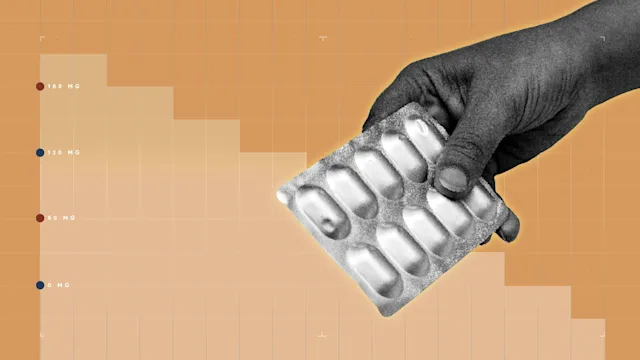Key takeaways:
Menopause and the time leading up to menopause can mean lots of changes to your body. Each person will experience this transition differently.
There are many lifestyle strategies you can follow to help you feel your best. And some people find certain supplements to be helpful with their symptoms.
If you don’t get relief with lifestyle strategies, talk honestly with your healthcare provider about treatment that may be right for you.
Menopause consists of the 12 months after your last period. But most people will tell you the symptoms start well before that, during a period of time called “perimenopause.” Throughout these years, most women experience a wide range of symptoms alongside the changes happening inside their body.
There are many treatments out there that can help support you through this time. But if you’re curious about alternatives to medication, there are many options. We’ll go through some of the most bothersome menopause symptoms, offer self-care tips, and review a few supplements that may help.
1. Hot flashes
Perhaps the most talked about menopause symptom is hot flashes. And for good reason — these can be pretty uncomfortable and disruptive to your life.
Here are some lifestyle suggestions to try:
Layer your clothes. This way you can easily remove clothing when you get caught off guard by a hot flash — particularly at work or in a public setting.
Layer your bedding. This will make it easy to adjust your covers during a case of the night sweats.
Keep a portable fan handy. Many people find a handheld fan to be surprisingly effective.
Avoid trigger foods. Try to avoid alcohol, caffeine, and spicy foods.
If you’re interested in supplements, you can try:
Black cohosh: Native Americans have used this herbal supplement to treat menstrual cramps. And studies suggest it can also help with hot flashes (and mood changes) in menopause.
Phytoestrogens: These are plant-derived substances found in soy, beans, and whole grains. They act like estrogens in the body. Studies have shown that people with perimenopausal symptoms may find that phytoestrogen supplements can help with hot flashes.
2. Memory changes
It’s normal to experience moments of forgetfulness. But, in menopause, you might feel like it happens more often. Perhaps the most important self-care tip is to not worry that this means something is wrong with your brain.
Here are some small changes to your habits that may help cope with menopause brain fog:
Establish a routine. It’s often easier to remember things — like where you put your keys — if you put them in the same place each time. This is just one example. You can create a routine around any activity or belonging that you frequently forget.
Write it down. Write down or use an app to keep lists and notes rather than relying on your memory.
Incorporate exercise into your day. It doesn’t have to be much. Even just a few minutes of physical activity — like a brisk walk — can improve memory.
Try something new. You can see benefits in memory with learning new skills, adopting a hobby, or volunteering in your community.
- Vivelle-DotDotti and Estradiol
- ClimaraEstradiol
- DivigelEstradiol
And, of course, getting enough sleep is also important for memory. But this can be a tall order, given poor sleep is a common problem during menopause. The tips below may help.
3. Decreased sleep
Sleep problems are common in menopause. And this can worsen many of the other symptoms, like memory and mood.
To get better sleep, try out these strategies:
Establish a sleep routine. Set a routine that starts at the same time each night. This can train your brain when it’s time to go to sleep. This might include washing your face, taking a bath, playing soothing music, or reading a book.
Remove screens. Say goodbye to screens in the bedroom, and limit screen time in the hours leading up to bed. The light from phones and televisions can disrupt levels of melatonin, a hormone that helps you fall asleep.
Exercise. Physical activity can help with sleep, too — especially if you do it earlier in the day, and in the sunshine.
Avoid caffeine and alcohol. Try not to drink alcohol or caffeine too close to bedtime. Both can lead to poor sleep. If you drink coffee, try to only have it in the morning because its effects can last up to 10 hours.
Here are some supplements to consider:
Apigenin: This is a substance in chamomile tea, and research suggests it may help promote sleep. Consider adding a cup or chamomile tea to your nighttime route.
L-theanine: This is an amino acid that’s also found in some teas, and may help you relax and prepare for sleep.
Melatonin: Studies have shown that melatonin in doses of less than 5 mg nightly can help with sleep. But this may not be a good long-term solution.
4. Mood changes
Menopause can affect your mental health in a number of ways. Not only do many of the above symptoms affect your emotional well-being, but changing hormone levels can also directly contribute to feelings of depression and anxiety.
There are many treatments for these mood changes, but a few simple activities may help, too.
Here are some suggestions to help with mood changes:
Carve out time. Set time aside each day just for you. This could simply be alone time for some stress-relieving activities. Or it could mean reaching out to a friend and spending time with people who support you.
Try mindfulness meditation. Mindfulness meditation has been found to be helpful in several menopausal symptoms. And it may be easier to practice than you think.
Consider practicing yoga. This practice could be your daily exercise. Yoga has been shown to help with mood symptoms as well. It can also help with changes in sexual desire and enjoyment.
5. Decreased libido
The natural fall in estrogen during menopause can affect sex drive (libido). It can also lead to vaginal dryness, which can make sex feel less pleasurable.
Luckily, alternative treatments for low libido are in line with many of the self-care tips we have already discussed — like exercise, mindfulness, and yoga. In addition to these, some people may want to use:
Lubricants: These can help with vaginal dryness during sex. Look for OTC water-based lubricants.
Vaginal moisturizers: These can help with the dryness you feel all the time — not just during sex. You can also get these over the counter.
And, as we mentioned above, phytoestrogens can help with decreased sex drive.
6. Urinary symptoms
During menopause, some people need to urinate more frequently. Others may feel more urgency, like they need to pee very suddenly. It’s also common to leak urine when sneezing, coughing, or laughing.
Here are some things to try:
Time your trips to the bathroom. This can help prevent any unplanned frequency or urgency. It may help to schedule bathroom breaks even when you don’t feel like you have to go.
Limit caffeine and alcohol. This tip is becoming a recurrent theme. But this advice can help with urinary frequency, in addition to hot flashes and sleep quality.
Try pelvic floor exercises. These techniques help to strengthen the muscles that hold up the bladder. And there are some exercises that you can easily do at home.
7. Weight gain
Weight gain is part of the body’s natural journey in the years around menopause. For some, changes to the size and the shape of their bodies can be mentally and physically challenging. Know that these changes are natural during this time, and try to be patient with yourself.
Take care of yourself during this time by:
Moving your body in a way that feels enjoyable: We have talked a lot about exercise in this article. And regular physical activity will also help your bones stay strong and keep your cholesterol levels in a healthy range. But exercise doesn’t have to feel like a chore. Find a physical activity that feels doable and enjoyable to you.
Incorporating nutritious foods into your diet, rather than cutting foods out: There’s no one-size-fits-all approach when it comes to a healthy diet. Remind yourself that both nutritious foods and enjoyable foods are part of nourishment. Restrictive dieting can further slow your metabolism, worsen mood symptoms, or lead to intense cravings. Instead, allow yourself to eat a variety of nutritious and delicious foods.
And rather than focus on weight, it may be more helpful to focus on keeping your bones and heart strong. Along with a nutritious diet, it may help to try supplements for:
Bones: Make sure you’re getting enough calcium and vitamin D. Aim for at least 1,200 mg of calcium and 800 IU of vitamin D each day. And if it feels hard to get there, supplements can help.
Heart: A lot of supplements claim to help the heart. But the ones with stronger evidence are omega-3 fatty acids, folate (vitamin B9), and vitamin D.
The bottom line
The transition before, during, and after menopause can feel stressful and confusing. As hormone levels change, your body will also change. And each person will experience this differently.
Try your best to be patient with yourself on the days where you don’t feel like yourself, and maybe try just one of the tips listed above. This online resource can help you find the most beneficial interventions for your symptoms. If you don’t find relief with these changes, know that there are medications out there that can help, too.

Why trust our experts?


References
Chen, M. N., et al. (2014). Efficacy of phytoestrogens for menopausal symptoms: A meta-analysis and systematic review. Climacteric.
Endocrine Society. (2022). Menopause and bone loss.
Finley, N. (2018). Lifestyle choices can augment female sexual well-being. American Journal of Lifestyle Medicine.
Geller, S. E., et al. (2005). Botanical and dietary supplements for menopausal symptoms: What works, what doesn’t. Journal of Women’s Health.
Institute of Medicine (US) Committee on Military Nutrition Research. (2001). Pharmacology of Caffeine: Caffeine for the Sustainment of Mental Task Performance: Formulations for Military Operations. National Academies Press.
Jehan, S., et al. (2017). Sleep, melatonin, and the menopausal transition: What are the links? Sleep Science.
Lee, H., et al. (2014). Effects of exercise with or without light exposure on sleep quality and hormone responses. Journal of Exercise Nutrition and Biochemistry.
Mitchell, J. J., et al. (2023). Exploring the associations of daily movement behaviours and mid-life cognition: A compositional analysis of the 1970 British Cohort Study. Journal of Epidemiology and Community Health.
National Center for Complementary and Integrative Medicine. (2017). Menopausal symptoms: In depth.
National Institute on Aging. (2020). Memory, forgetfulness, and aging: What’s normal and what’s not?
National Institute on Aging. (2021). Hot flashes: What can I do?
National Institute on Aging. (2021). Sex and menopause: Treatment for symptoms.
National Institute on Aging. (2021). Sleep problems and menopause: What can I do?
Peacock, K., et al. (2022). Menopause. StatPearls.
Roehrs, T., et al. (n.d.). Sleep, sleepiness, and alcohol use. National Institute on Alcohol Abuse and Alcoholism.
Salehi, B., et al. (2019). The therapeutic potential of apigenin. International Journal of Molecular Sciences.
Summer, J. (2023). L-theanine for sleep. Sleep Foundation.














